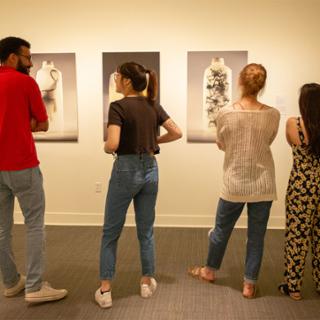Studying Arts Management
Through the study of arts management, students become familiar with the important leadership role that arts administrators play in the non-profit arts fields of music, dance, theatre, and visual arts. Museums and arts organizations must be managed by individuals who possess both an artistic sensibility and business acumen. It is for this reason that the concentration requires students to have a major or minor in one of the fields mentioned above (though courses are open to students from any school).
The internship experience provides students with first-hand exposure to the everyday functions of an arts organization. Internships link lessons learned in the classroom to practical applications in the field.
Upon completion of the curriculum, students will have learned the fundamental vocabulary and organizational structures unique to the discipline. They will have an awareness of current cultural trends and issues, which allows for thorough analysis and examination.
After College
Students studying arts management must choose whether to pursue an advanced degree or enter the workforce, most typically in the non-profit sector. Some students find that the program prepares them for careers in business and law, often focusing on arts issues. The broad scope of the curriculum and practical nature of the training provides students with a plethora of skills applicable to any career pursuit.
